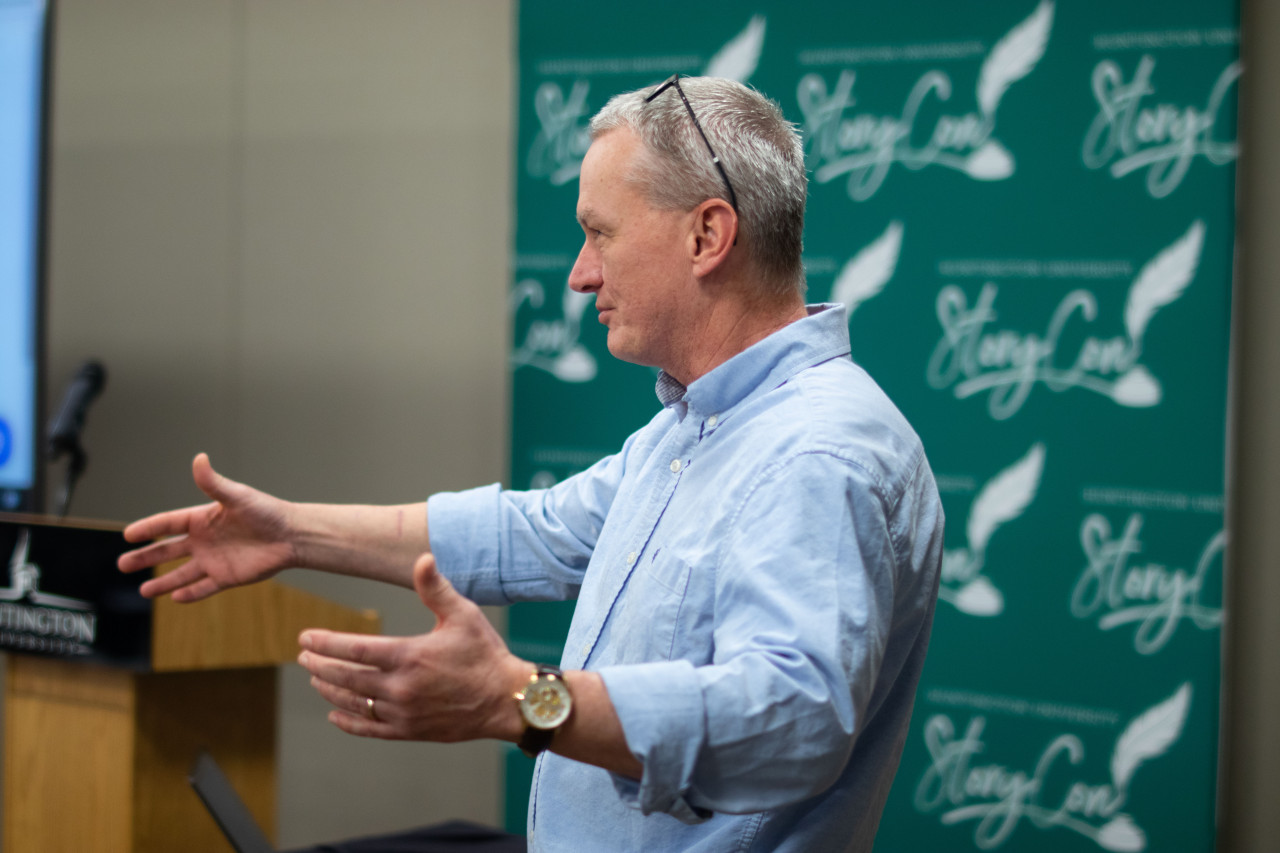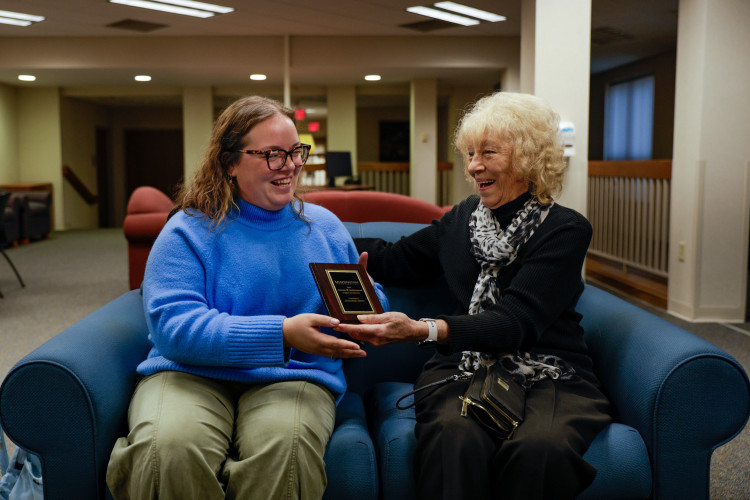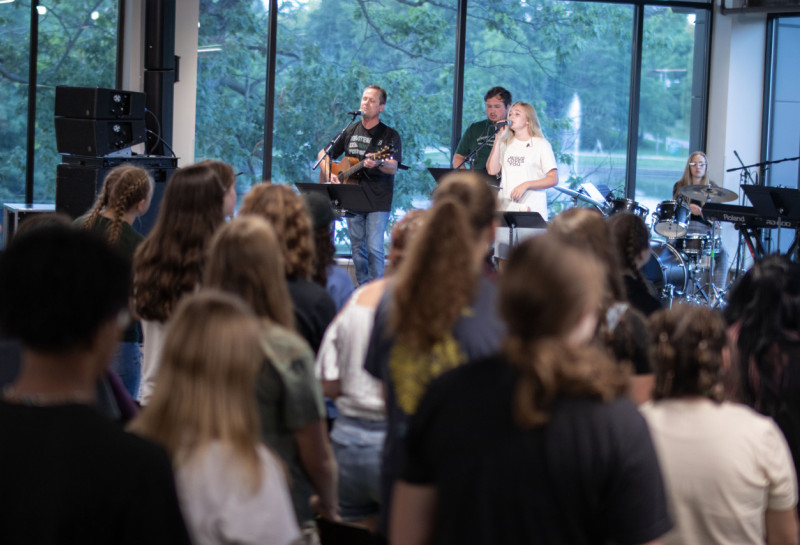English Majors & Minors
English Scholarships
The English Department at Huntington University invites anyone planning to major in English Education, English Literature, English Pre-Law, or English Writing at Huntington to submit an application for competitive scholarships of between $1000 and $2000. These scholarships will be awarded to qualified incoming students based on academic standing (including GPA), leadership qualities, and a writing sample. To retain the scholarship each year, the student must demonstrate progress toward the English major. The deadline to apply is March 31.
Questions? Contact Dr. Todd Martin, tmartin@huntington.edu

To truly breathe life into language, you need to experience what you are studying in an up-close and personal way. That’s why practical learning is built into our curriculum.
















